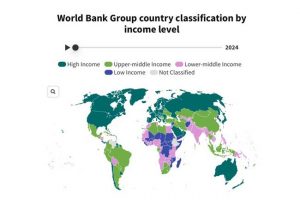Caritas supports Eastern Women for healthy lives
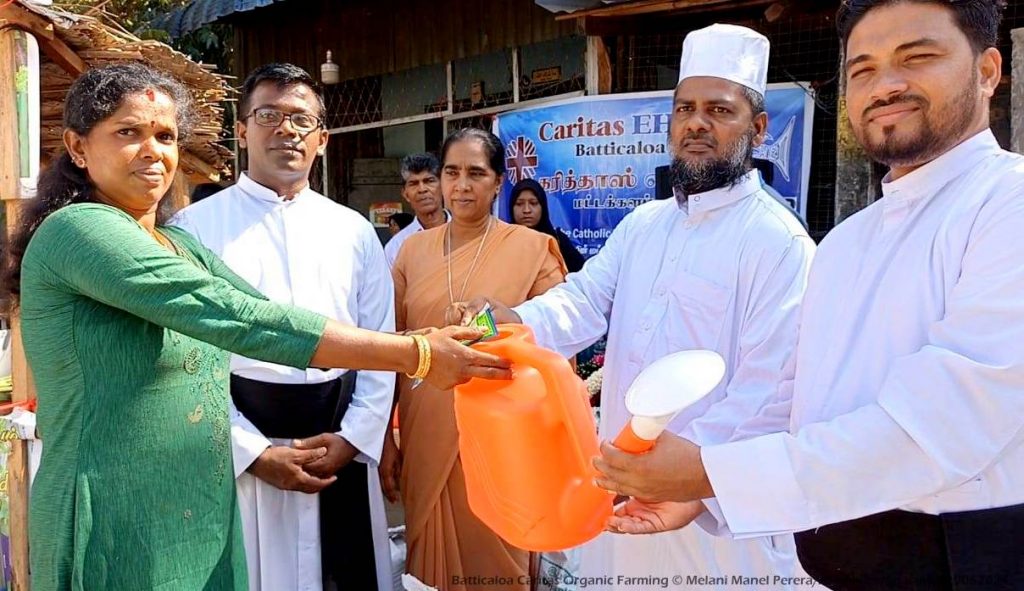
“Today is a very happy day for us. For the first time, we have opened the market to sell the harvest we have cultivated for so long. Muslim dignitaries, a Buddhist clergyman, and Catholic Priests, Caritas representatives are here with us on this occasion. It is a very beautiful scene.” several Muslim Women expressed their joy.
Muslim women expressed their views so, during the inauguration of the new community market and the event of distribution of some tools,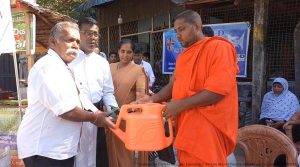 equipment, seeds, and manure for their cultivation, held recently in the Iyankerney Muslim village.
equipment, seeds, and manure for their cultivation, held recently in the Iyankerney Muslim village.
Caritas EHED recently launched a new program aimed at educating people about the benefits of organic farming, emphasizing its importance for current and future health, and helping boost their economy.
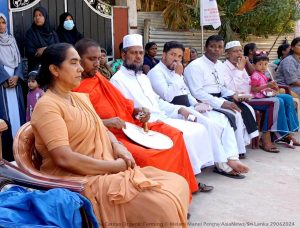 After the community market opened, the Rev. Fr. S.L. Jayanixon who is the Director of Caritas – Eastern Province Human and Economic Development Center stated, “The goal of our CAFFOD project is to establish a society that is toxin-free and to empower everyone to live together in the society. We are happy about this success. It is up to you all to maintain good health and achieve economic development.”
After the community market opened, the Rev. Fr. S.L. Jayanixon who is the Director of Caritas – Eastern Province Human and Economic Development Center stated, “The goal of our CAFFOD project is to establish a society that is toxin-free and to empower everyone to live together in the society. We are happy about this success. It is up to you all to maintain good health and achieve economic development.”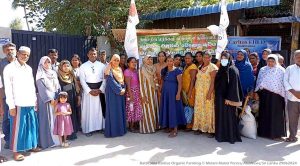 widely used, mobilizing people for organic farming is a valuable work that should be appreciated. Also said that setting up a market to sell their cultivated crops is a task that should be appreciated a lot.
widely used, mobilizing people for organic farming is a valuable work that should be appreciated. Also said that setting up a market to sell their cultivated crops is a task that should be appreciated a lot.“The opinion of many people is that it is very difficult to do this organic farming. It is not difficult. We are not used to it. From the beginning, we were used to fertilizers such as urea brought from foreign countries. Since there was no use of organic fertilizers, when we stopped bringing urea fertilizers to our country, all our farming and cultivation were crippled,” explained Venerable Dambagalle Vanarathana Thero.
K. M. M. Kabeer Moulavi commended Caritas for their significant efforts in the community, mentioning that even many years ago, the Holy Quran emphasized the importance of consuming non-poisonous organic food. “Our Prophet Mohammad stated that all individuals, not only Muslims, should preserve their well-being by eating organic food that is toxin-free” he added.
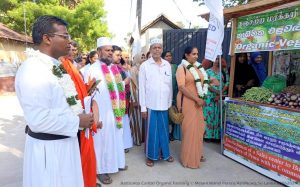 She commended the dedication of Muslim women, urging them to harness their skills to enhance their economy and foster unity.
She commended the dedication of Muslim women, urging them to harness their skills to enhance their economy and foster unity.
“Using the resources you received peacefully to strengthen your economy and develop unity among you is a task you must do yourself,” said Sister Deepa.
“I feel very happy to see these non-toxic and healthy vegetables brought from our gardens for sale today,” she added. 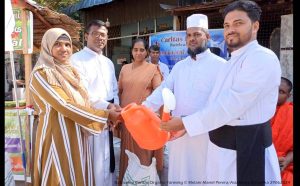
“We are grateful to Cafford Project, Caritas Eastern Provincial Human Economic Development Institute, Director Father Jeyanixon, and Caritas National Institute for these benefits,” joyfully expressed Hamzia.






